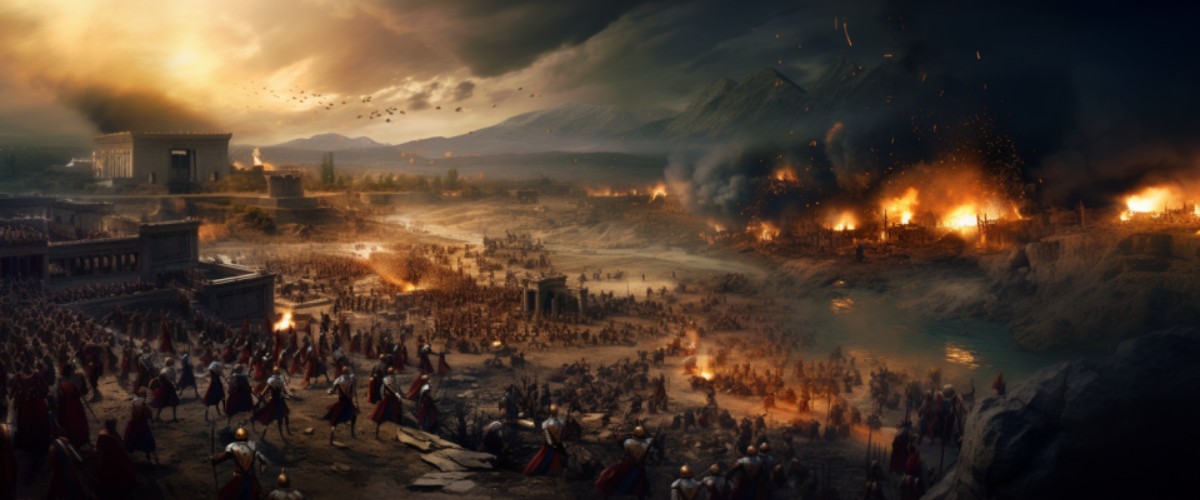Spanning from 499 BCE to 449 BCE, the Persian Wars epitomise a defining confrontation between the burgeoning empire of Persia and the collective city-states of Greece. These monumental conflicts altered the course of history, steering the subsequent development of Western civilisation and laying down antecedents for concepts of democracy, tyranny, and imperial ambition.
Background
Origins of Conflict
- Imperial Ambitions: Persia, under the Achaemenid Empire, embarked on a path of territorial expansion.
- Ionian Revolt: Greek city-states, particularly in Ionia, rebelled against Persian subjugation, sparking the initial flame.
- Athens and Eretria: Their support for the Ionian Revolt incurred the wrath of the Persian Emperor, Darius.
Key Figures
- Darius the Great: The Persian Emperor who initiated the first invasion against Greece.
- Xerxes: Son of Darius, who pursued his father’s mission with the second invasion.
- Themistocles: Athenian politician and general who played a crucial role in the Greek resistance.
Major Happenings
Critical Moments Across the Wars
- Battle of Marathon (490 BCE): A significant Athenian victory that symbolised Greek resilience.
- Battle of Thermopylae (480 BCE): Spartan King Leonidas and his 300 soldiers showcased an iconic stand against the Persians.
- Battle of Salamis (480 BCE): The naval battle where the Greek fleet, under Themistocles, dealt a substantial blow to Persian naval power.
- Battle of Plataea (479 BCE): A unifying moment for the Greeks which resulted in a decisive defeat for the Persians.
Immediate Outcomes
Consequences and Repercussions
- Greek Unity: The wars fostered a transient unity among the often-fractious Greek city-states.
- Persian Setback: The failures in Greece marked a limitation to Persian expansion westward.
- Golden Age: Athens emerged empowered, paving the way for its Golden Age, where art, philosophy, and democracy flourished.
Long-term Impact
Ripples Through History
- Hellenisation: Following the Persian Wars, the ensuing epochs, particularly under leaders like Alexander the Great, saw the widespread dissemination of Greek culture (Hellenisation) across the known world.
- Democracy and Philosophy: The philosophical and political ideas nurtured in the aftermath deeply influenced Western civilisation.
- East and West Dichotomy: The wars arguably set a precedent for the subsequent millennial tensions and interactions between the Eastern and Western civilisations.
Conclusion
The Persian Wars, though deeply rooted in the annals of antiquity, echo through to our modern day, embodying the perpetual struggle between freedom and tyranny, innovation and tradition. The consequences and ideological foundations laid during this tumultuous period perpetually influence contemporary discourses on governance, resistance, and identity. Thus, the entwined fates of Persia and Greece during these wars continue to cast a long shadow, whispering the tales of valour, sacrifice, and the undying flame of human spirit and liberty.








